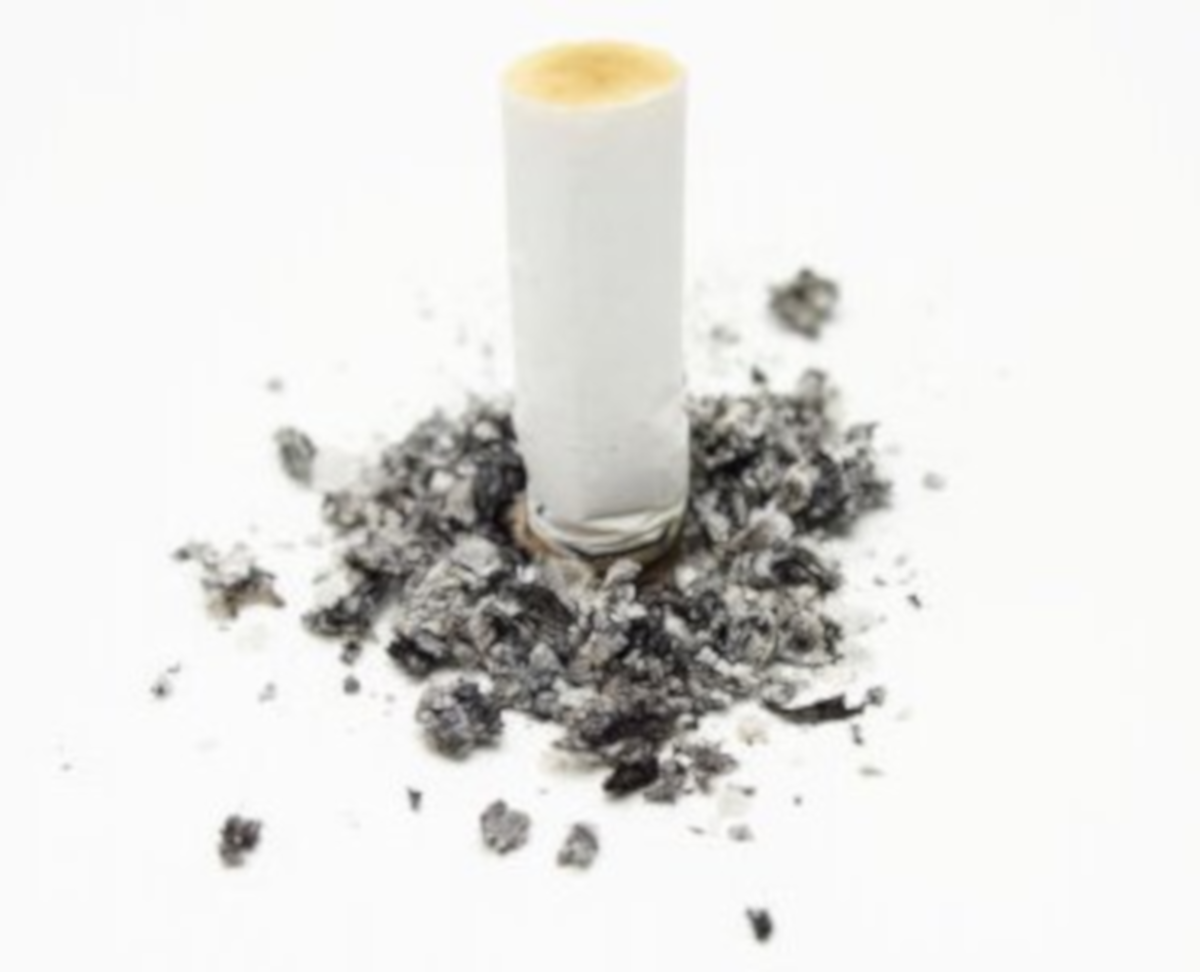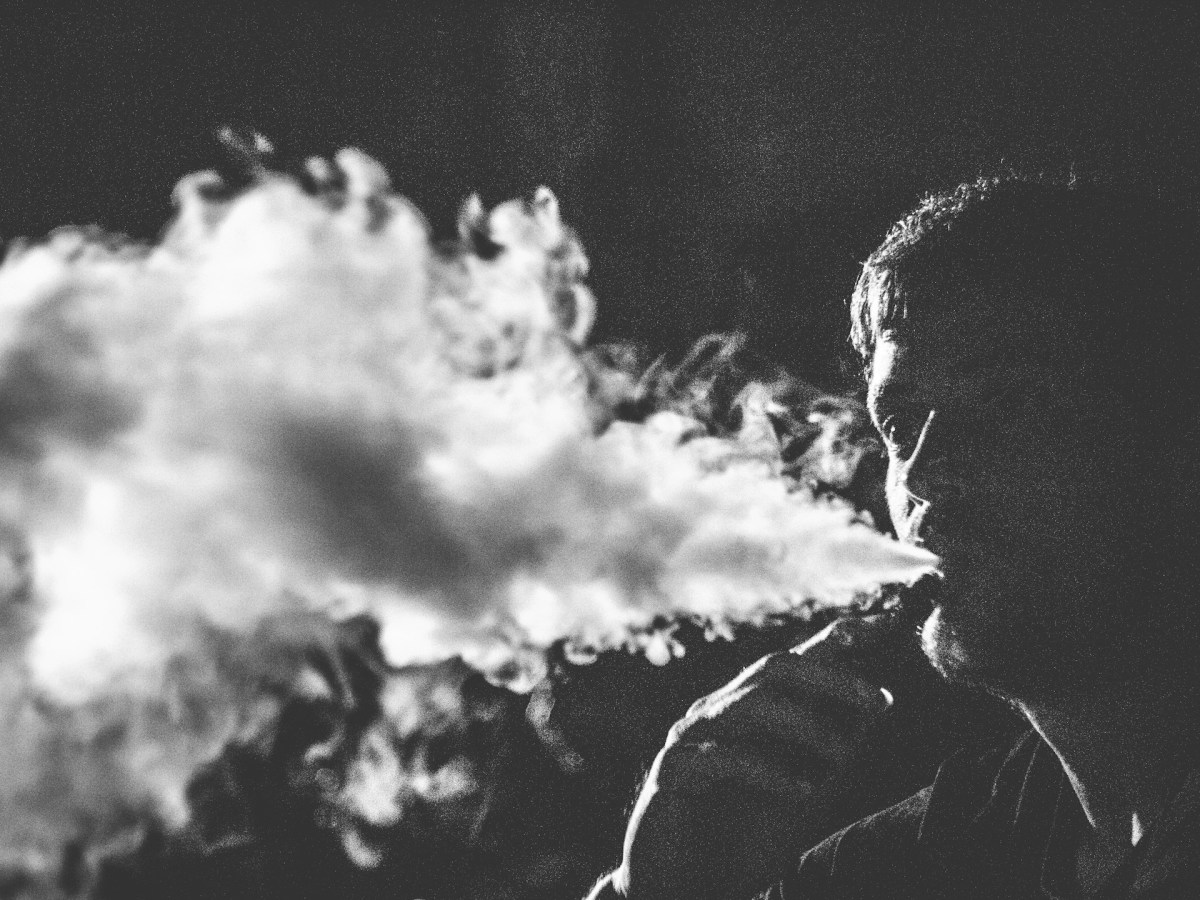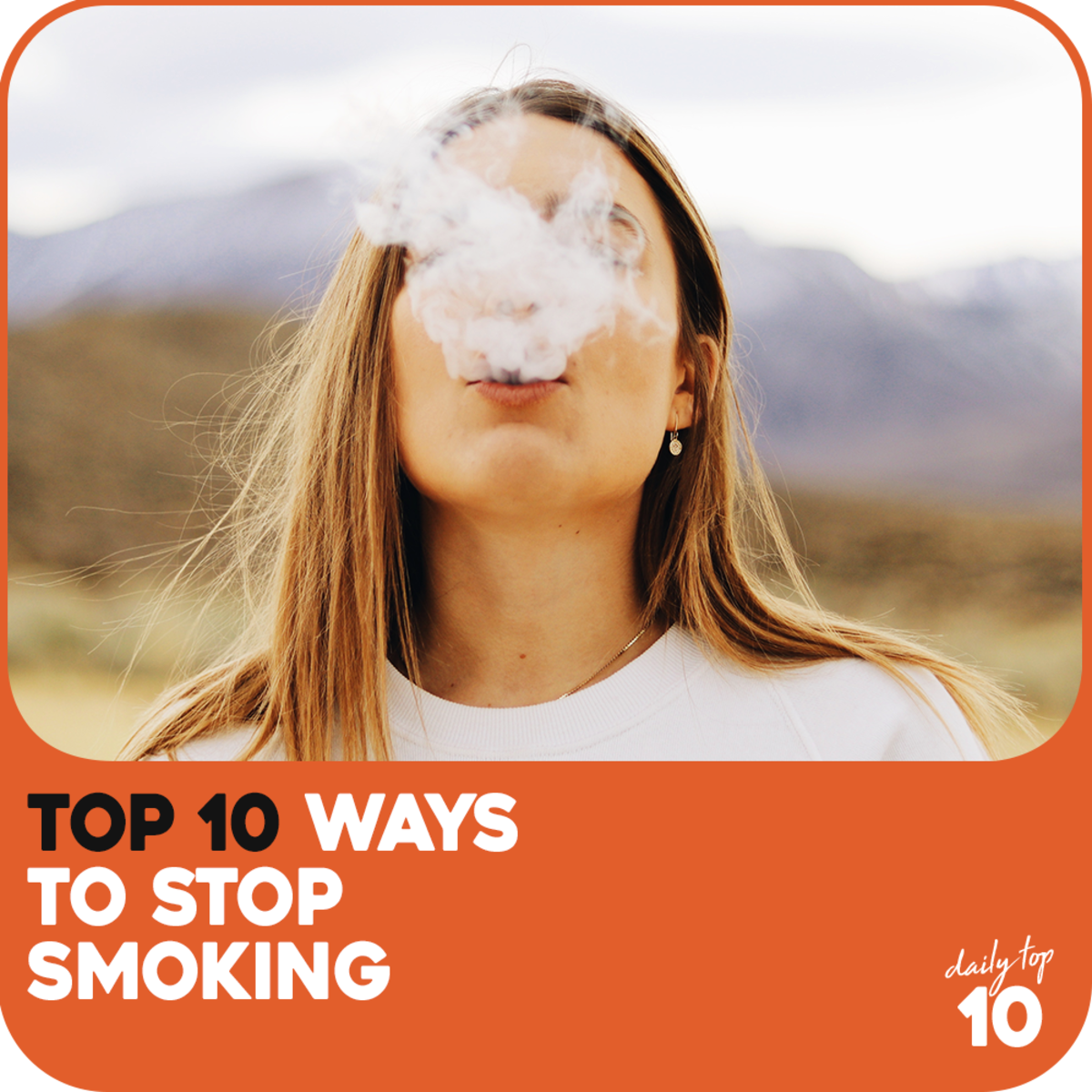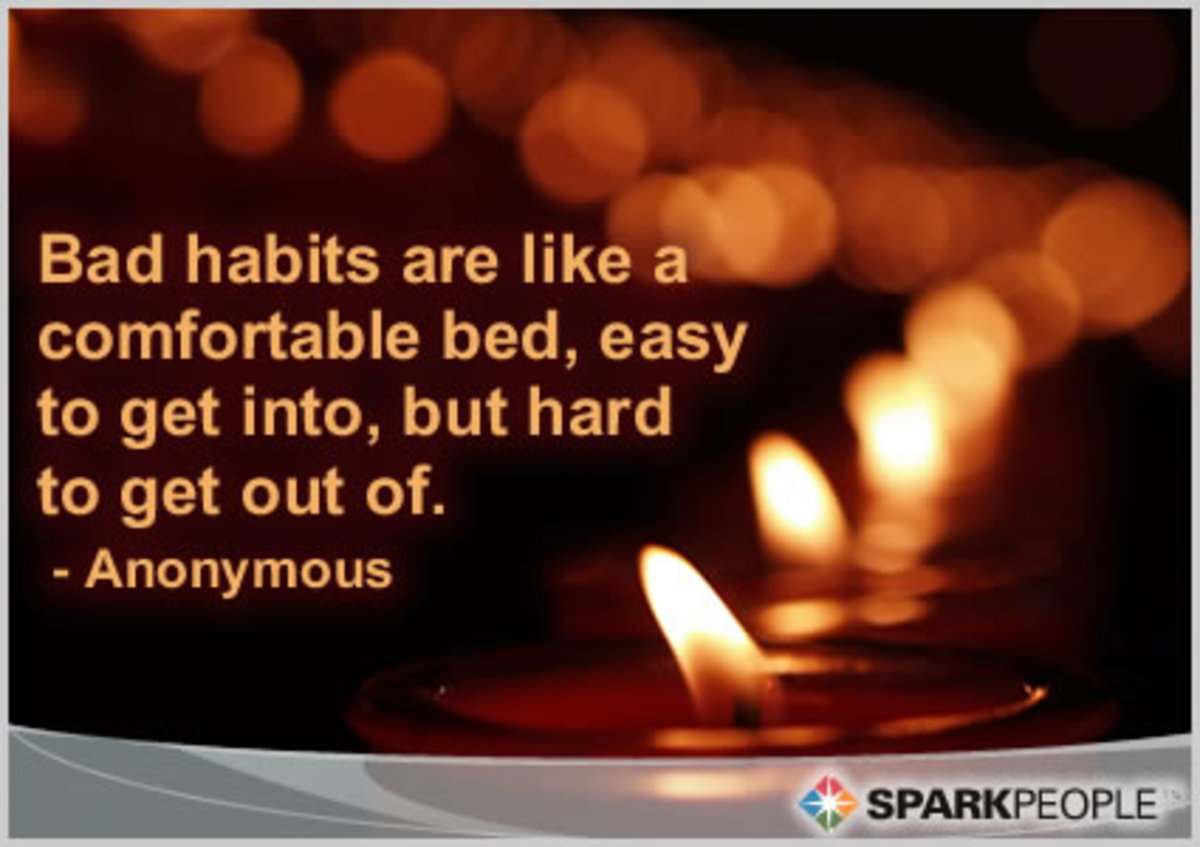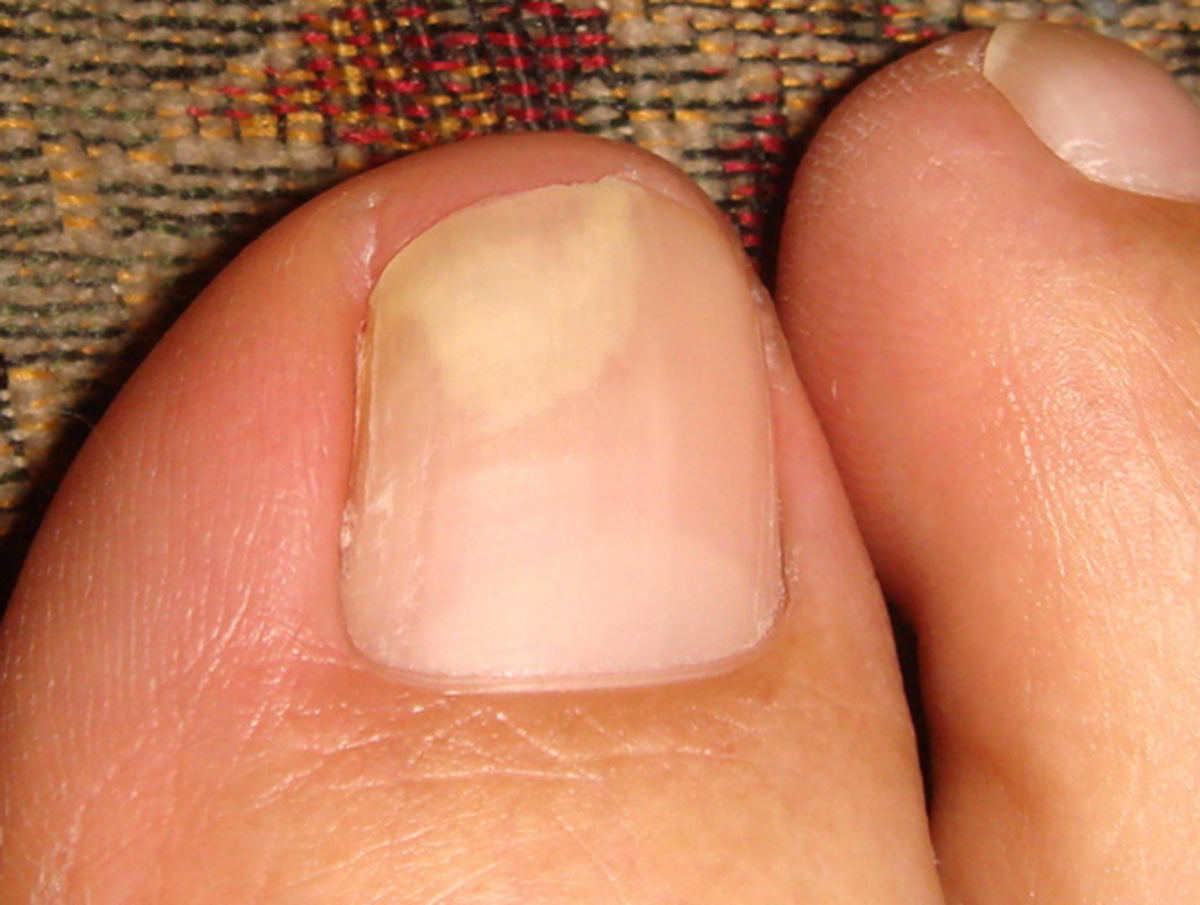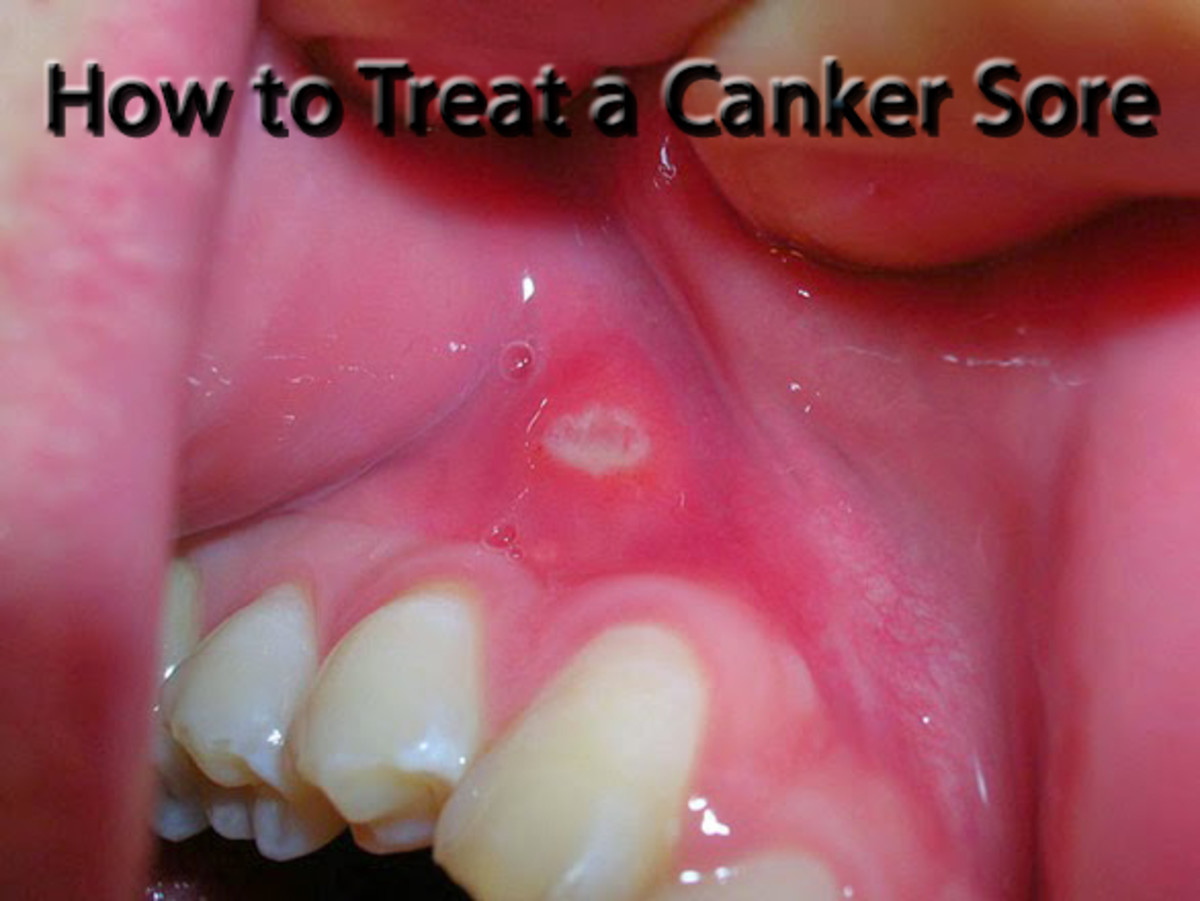How to Break a Bad Habit with a Good One
When was the last time you shouted “I can’t help it!” when someone gave you the death-stare after you cracked your knuckles, stumbled in late or forgot to close the cupboard doors again?
Yep, we all have our bad habits. The good news is that you can help it. Just get another habit.
At first glance that sounds rather counterproductive, but it’s not - if you’re swapping your bad habit for a good one.
The first step to getting over a habit, is acknowledging that you have one. Having a bad habit doesn’t make you a bad person, nor does it make you weird. If it’s any consolation celebs have bad habits too. Now, that statement is not meant to make habits seem cool, but to bring your attention to the fact that we are all human and we all fall victim to some kind of addiction.
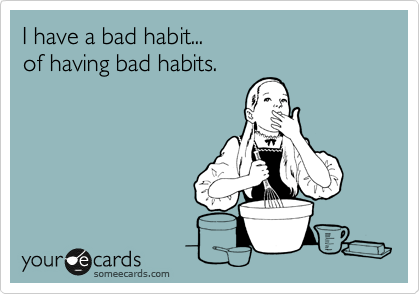
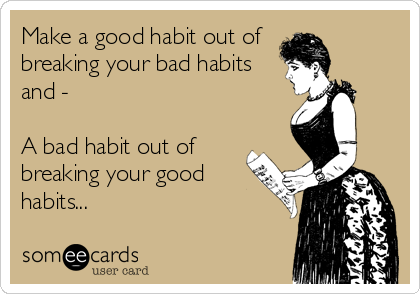
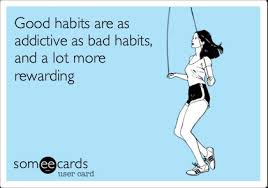
But have you ever wondered how?
According to Gardner, Lally and Wardle (Making health habitual: the psychology of ‘habit-formation’ and general practice by Benjamin Gardner, Phillippa Lally, Jane Wardle), “habits are actions performed automatically with little forethought or effort” So you could be annoying others without realizing it because it’s all happening on a subconscious level.
Habits are formed through repeated actions which may be performed on a regular/daily basis. Consider the action of washing your hands, it is such a repeated action that you don’t even have to think about. Think about your nail-biting habit. You probably would not have noticed until the person in your presence brought it to your attention. This is what makes habits so hard to break, the fact that we don’t always realize just how much of a habit our habits are. The best solution then, is not to simply decide to eliminate a habit, but to make an effort to replace it.
Tips to begin replacing your bad habits with good ones:
1. Start Small
Getting rid of a habit isn’t as easy as getting rid of a bag of chips in three mouthfuls. Don’t try to go cold turkey on all your habits. Good habits usually require effort, discipline and willpower. If you’re feeling particularly Superhero-esque, then you could try to get rid of all your habits at once. But if you struggle with the willpower to quit, then its best you start gradually.
To begin, choose one particular bad habit that you want to get rid of. By starting with one habit at a time you place yourself under less pressure and allow yourself to make a more concerted effort around the change.
2. Recognize and Create Triggers
Habits are often situational; there is always a certain setting or circumstance that triggers your habit or addiction. The two most common triggers for habits are stress and boredom.
You may not always recognize the triggers before you catch yourself in the act of your habits. So the next time you catch a glimpse of your reflection gnawing away at your finger nails or lighting another cigarette, take a moment to evaluate the situation. How do you feel at the moment you relapse into a situation? By doing this you allow yourself to bring your habit into consciousness. When you decide on a good habit you would like to adopt, you can also create triggers around it. For example, you could reward yourself with a fruit salad break for every page of writing you manage to complete (See what was done there? Anxiety, procrastination and junk food addiction tackled in one situation. Impressive, yes?)
3. Be Consistent
Since habits form through repeated actions within the same setting, you should have your good habit pan out around the same time every day.
Repeat your good habit for (at least) 30 days [insert 30 day habit link] Write it down, mark it on your calendar, set an alarm or ask a friend to help you keep it in mind. Better still, make your newfound habit publicly known, so that you will be more conscious of your actions (there’s nothing like having people constantly remind you of what you said to make you want to go through with something) Of course, it won’t be of much use standing on the bar counter, far from sobriety, declaring to equally drunk strangers that as of tomorrow you will be having fruit juice instead of alcohol. At least discuss your decision to change with people who will hold you to your word and help you along your journey.
Also, don’t set impossible tasks for yourself, expecting consistency. For example, don’t tell yourself that you will give up coffee and go mountain biking every morning instead. Be realistic and choose a schedule that would be convenient and unquestionably achievable . Soon your new, more beneficial habit will occur effortlessly and unconsciously.
To give you an idea of replacing a bad habit with a good one, let’s have a look at some of the most common habits and how they can be overcome:
1. Biting your Nails
This is one of the most common giveaways of stress/anxiety. While the most immediate effect of nail-biting may be detrimental to your grooming habits (do you really want unattractive, ragged fingertips? Didn't think so), it can also contribute to illness . Biting your nails is an unsanitary habit which puts you at risk of getting colds and infections.
Nail biting also gives off the impression of anxiety. You let people know that you’re somewhat nervous, even if you’re saying something to the contrary.
Now that you’re convinced to stop biting your nails, it’s time to explore a few good habits. Firstly, to prevent your nails from becoming your first go-to snack, try keeping them short, coating them with a bitter nail coating (the worse it tastes, the better), or covering them up with gloves or Band-Aids.
Good Habit:
Doodle.
Every time you feel your fingers lift to your mouth, grab a pen and put them to pen instead. It may seem like you’re wasting time, but doodling actually has hidden benefits for your mental stimulation. Considering that nail-biting is more than likely an anxious action, doodling would be helpful in getting you to focus. Doodling helps your brain focus and keeps it from wandering. Doodling requires cognitive action and is said to expend enough energy to stop you from daydreaming while still allowing you to pay attention.
Extra Tip: Keep some healthy snacks such as sunflower seeds and pumpkin seeds to chew on when you feel the urge to put your fingernails in your mouth. You could also have carrot sticks and fruit on hand whenever you feel anxious.
2. Twirling your Hair
Someone twirling their hair could send out confusing mixed signals . To the person observing you, they may see it as a subtle ways of flirting with them while what you’re actually thinking is that you’re bored or uncomfortable and would like to get away from them soon. Can you see how that may pose a problem? Twirling your hair can also be damaging to your locks so the sooner you take preventive measures the better.

Good Habit:
Doodling would also work well to distract you from twirling your hair. Twirling your hair is often an unconscious habit and you may find yourself doing it (or perhaps someone else will find you do it) while reading, watching TV or daydreaming.
Another good habit would be to (if it is at all possible) keep a sewing kit, knitting needles or dumbbells at your side. Whenever you catch yourself twirling your hair, pick one of these up. Do some patchwork on your garments (you know, the ones with the buttons missing that you’ve been putting off?). Experience the therapeutic benefits of knitting benefits of knitting your own scarf. Tone your arms with some dumbbell exercises dumbell exercises . Hopefully, your arms will be too sore to lift them up to your hair.
Extra Tip: Get yourself a stress ball or get crafty with some putty. If you’re on the go wear a piece of jewelry that you can twirl instead, or get some worry beads .
Whatever you do, do something with your hands to distract you from reaching for your hair. The benefits of this are that it will relieve stress and tension so you can go back to anxiety-free flirting. Just don’t twirl your hair while you do this, occasional flicking will do. Try wearing your hair up instead.
3. Eating Junk Food
It’s no secret that eating too much junk food can be detrimental to your health and leads to weight gain .
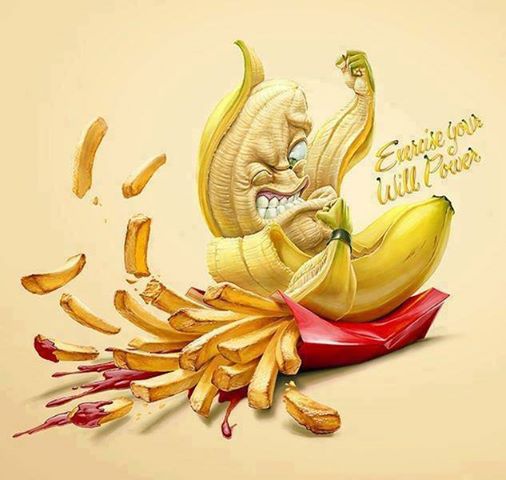
Good Habit:
Make a habit out of drinking water. To help curb your cravings, keep bottles of water at your desk (or wherever you are) and commit to drinking a certain amount every day at particular times. Your body and your skin will thank you.
Declare certain days of the week as your salad days.
Sleep early, wake early. This way you will have enough time to have a healthy breakfast healthy breakfast and pack a healthy lunch .
Extra Tip: To beat the addiction , try carrying healthy alternatives such as fruit, dried fruit or trail mix around with you. Be conscious of what you eat and what causes you to eat more. This way you will be better able to curb your cravings because you become aware of what brings them on.
4. Cracking Joints
While it has been found that cracking your knuckles might not lead to Arthritis (which is great news for us compulsive bubble-busters), it may be a bit disturbing for those in audible distance. So this is just a courtesy call for now.
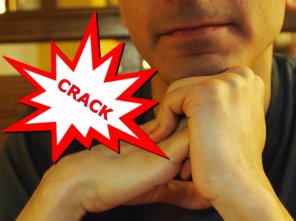
Good Habit:
Stretch your body or massage your muscles to relieve the stress and tension in your body.
5. Smoking
Smoking is one of the most dangerous habits to have and can be quite difficult to quit if you do not have a desire to quit and no quitting strategy in place. Smoking leads to cardiovascular diseases, respiratory diseases, cancer and other health issues . So the sooner you quit your addiction, the better.
When forming a good habit, consider your usual smoking times and prepare a list of things you could do instead of smoking. Find something else to do in your smoke break, drink herbal tea, chew on gum or get into the habit of Acupuncture . Don’t do anything that may reinforce the habit of smoking such as sucking on a lollipop or pen.
It may be difficult, but it would certainly be worth it.
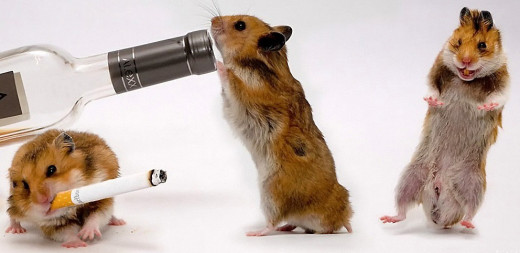
6. Drinking Excessive Alcohol
Drinking excessive amounts of alcohol on a regular basis can have negative consequences, not just on your health , but also on your lifestyle .
If you refer to yourself as a ‘social drinker’ yet secretly know that you depend on alcohol, in about the same way Popeye depended on spinach, to boost your confidence then perhaps you should look into ways of boosting your self-esteem .
When it comes to alcohol addiction , seeking help is the first step to recovery. Speak to those close to you, speak to a professional and join support groups.
Good Habit:
Exercise . This will not only encourage a healthier lifestyle, but will also increase your confidence.
Teach someone something that you know you are good at, whether it is a language, a dance, an academic subject or the correct ways to slice and dice vegetables. This will also help to boost your self-esteem.
Take care of yourself – your appearance and your health. Commit some time to pampering yourself, making yourself look and feel better.
Be positive. Whether drinking alcohol is a past time you want to pass on or an addiction you want to overcome, be positive about your ability to overcome it. Commit to dealing with the issues that contribute to your craving for/dependence on alcohol. Do not hide your struggle; get into the habit of speaking to people more about your addiction and your intentions. Do not isolate yourself and keep the company of those who prefer a lifestyle of sobriety.
7. Cursing
Curse words may seem like great sentence enhancers to you, and perhaps a good way to get something off your chest when ‘sensible, everyday talk’ just isn’t going to aptly express the way you feel. But your choice of French may not go down as well with those in your presence (unless those in your presence are your best buds who ‘know what you mean’).
Cursing may be seen as offensive, especially in a new social setting or (and most especially) at the workplace. For some people, cursing has become so much of a norm that they cannot help themselves and default into potty-mouth-mode without much thought, especially when feeling particularly stressed.
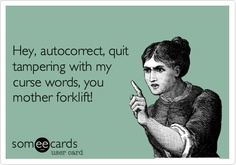
Good Habits:
Curse words replaced with courteous alternatives. Write down a list of your favorite curse words and replace them with everyday words like apple, donkey, brick etc. Or you could make up your own words like shoobap, or something similar (use your imagination). It may have comical consequences and just might relieve your tension.
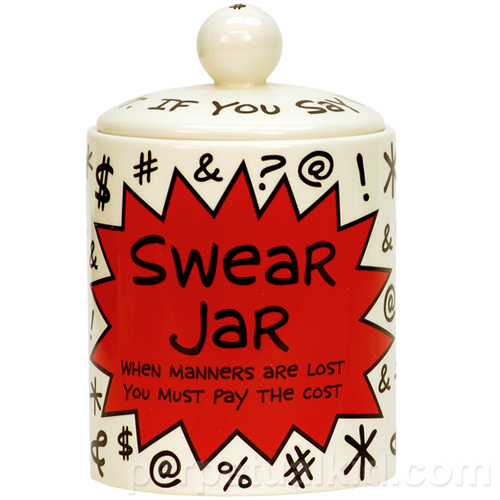
Also, adopt the use of a swear jar . How it works is that you get a jar, label it the “@$%!&# Swear Jar” (or something else), and use it to place a certain fee inside every time you swear. You can ask your foul-mouthed co-workers or friends to join you and get someone else to monitor your profanities (so that you are held accountable and appropriately fined)
The money collected from the swear jar can either be used for charity, or toward something you would hate for anyone to buy (like sock sandals . You definitely won’t be cursing if you know that’s where you money is going).
Don’t use the money for a vacation or to fuel another habit.
i.e Don’t do this:
8. Tardiness
We all have issues with occasional lateness, but some of us have made it part of our being. It’s as if life itself presses the snooze button on us.
The problem with tardiness is that it does not only affect us, but it also inconveniences those who wait for us. While there are other external factors that could contribute to lateness, such as unexpected traffic, road construction or a family of geese leisurely crossing the road, chronic lateness has a few deeper issues.
The first thing to do when deciding to overcome your tardiness, is to figure out what it is that is making you late . You can only blame the family of geese so many times.
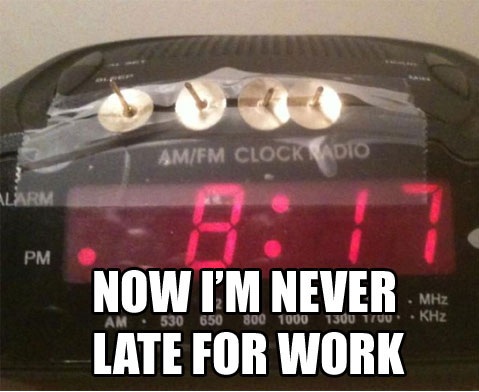
Good Habits:
For starters you can stop pressing the ‘snooze’ button. But if you know that might be a near impossible task, place your alarm a walking distance from your bed. Getting up out of your bed to press the snooze button will make you less likely to want to snooze afterward.
Set calendar dates of the things you need to do in order of priority.
Develop a habit of preparing the night before. Iron your clothes, prepare your lunch and place your equipment or necessary items closer to the exit so that you can just grab them on your way out. Also look into breakfasts you can have on the go when you don’t have time to sit down to breakfast breakfast . These are only a few ways to overcome tardiness to get you started.
We all have habits. While it may seem easier to develop bad habits, good habits are much more beneficial and have greater long term rewards. Habits become a part of who we are so be wise when it comes to choosing which ones will define you.



